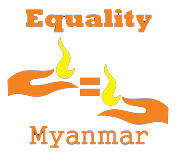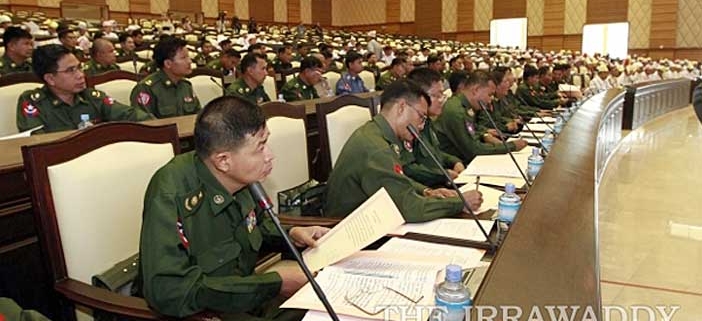THURSDAY, 24 MAY 2012 00:00COLIN HINSHELWOOD / THE IRRAWADDY
The Burmese government has enacted limited political and economic reforms, but human rights violations and violations of international humanitarian law in ethnic minority areas have increased during the past year, said Amnesty International in its 2012 report which was released on Thursday.
“Myanmar’s government took a pivotal decision to free more than 300 political prisoners and allow Aung San Suu Kyi to contest elections,” the London-based human rights group said. However, “an escalation of conflict-related human rights violations in ethnic minority areas, as well as continuing harassment and detention of activists … suggested limits to the reform.”
Referring to the human rights violations in ethnic areas—most notably Karen, Shan and Kachin states where armed conflict continues—Amnesty International said, “Some of these [violations]amounted to crimes against humanity or war crimes. Forced displacement reached its highest level in a decade, and reports of forced labour their highest level in several years. [Burmese] authorities maintained restrictions on freedom of religion and belief, and perpetrators of human rights violations went unpunished. Despite releasing at least 313 political prisoners during the year, authorities continued to arrest such people, further violating their rights by subjecting them to ill-treatment and poor prison conditions.”
Noting that restrictions on pro-democracy leader Aung San Suu Kyi had been relaxed, the report commended the newly elected government in Naypyidaw for “slightly” relaxing the country’s policy of media censorship; for passing an improved labour law; and for establishing the National Human Rights Commission.
The report also noted that in September 2011, the Burmese government “suspended construction of the controversial, China-backed Myitsone Dam in Kachin state, citing domestic opposition to the project. It also reportedly ceased demanding that ethnic minority armed groups become official Border Guard Forces … Parliament also passed a law allowing peaceful protests under certain conditions.”
However, it condemned Naypyidaw for its human rights record, for conducting a policy of forced labor, and cited reports of the Burmese army “using prison convicts as porters, human shields and mine sweepers.”
The Burmese army also came under fire for displacing tens of thousands of villagers in conflict areas, for burning down villages, and for cases of violence and sexual assault on civilians, mainly ethnic villagers.
Read Amnesty International’s full Myanmar report here:
Headlined “Report 2012: No longer business as usual for tyranny and injustice,” Amnesty International’s 50th Global report saved its most damning criticism for the United Nations Security Council, which, in the face of worldwide civic protests in 2011, it referred to as “tired, out of step, and increasingly unfit for purpose.”
In addition to the Burmese regime, Amnesty also singled out the governments of North Korea, Sudan, Israel and China for repressive and horrific human rights records.
Photo :THE IRRAWADDY


 Equality Myanmar (EQMM) is a leading nongovernmental organization that organises a wide range of human rights education and advocacy programs, the documentation human rights violations, and provides emergency support for activists, human rights defenders, and their families. We work with a range of local civil society organizations, educators, activists, various local actors, and our programs and activities reach all states and regions in Myanmar.
Equality Myanmar (EQMM) is a leading nongovernmental organization that organises a wide range of human rights education and advocacy programs, the documentation human rights violations, and provides emergency support for activists, human rights defenders, and their families. We work with a range of local civil society organizations, educators, activists, various local actors, and our programs and activities reach all states and regions in Myanmar.
